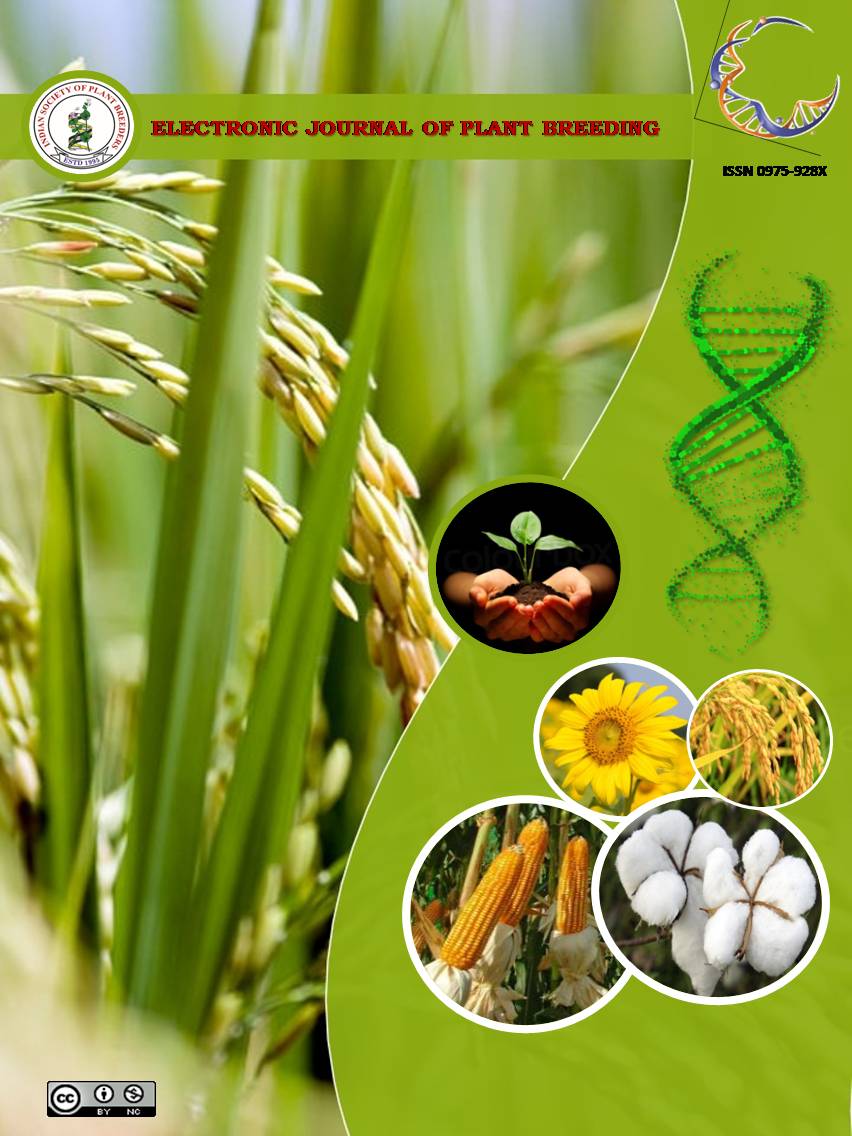Distribution of phytic acid and allelic variations in inositol monophosphatase gene in chickpea (Cicer arietinum L.)
Abstract
Phytic acid (PA) is an anti-nutritional factor, which chelates divalent cations, limiting their bioavailability. In this study, 31 Indian cultivars of different agroclimatic zones and 52 germplasm lines representing 21 chickpea growing areas worldwide were evaluated for variability in PA content. Over two consecutive growing seasons, a wide variation in PA content (8.81-21.97 mg/g) was observed. ANOVA for PA content in both cultivars and non-cultivated accessions indicated significant Genotype X Environment interactions, yet, genotypes with consistently low (<13 mg/g) and high (>17 mg/g) PA were identified. Furthermore, using a bulked segregant analysis approach, the transcriptional regulation through repeat length variation in inositol monophosphatase (CaIMP) gene associated with PA content was demonstrated in two F2 populations segregating for its alleles. Both the CaIMP alleles (shorter repeat, NCPGR170 and longer repeat, NCPGR200) were equally distributed in 26 popular desi chickpea cultivars. This information will help selecting germplasm for developing nutritionally improved chickpea cultivars

It is certified that:
- The corresponding author is fully responsible for any disputes arising due to the publication of his/her manuscript.
- The article has been seen by all the authors who are satisfied with its form and content.
- The sequence of names of authors in the by-line is as per their relative contribution to this experiment, giving due credit to all scientists who made notable contribution to it.
- All the authors fully understand that inclusion of any other co-authors or exclusion of any co-authors is not possible once the article has been submitted to the journal.
- The corresponding author takes full responsibility for this article.
- The address of the organization where the research was conducted is given.
- The article is exclusive for this journal, and the results reported here have not been sent (and will not be sent during its consideration by this journal) for publication in any other journal.
- Authors agree to abide by the objective comments of referees and do agree to modify the article into a short note as per the recommendation, for publication in the Electronic Journal of Plant Breeding.
- If published in Electronic Journal of Plant Breeding, the copyright of this article would vest with the Indian Society of Plant Breeders, who will have the right to enter into any agreement with any organization in India or abroad engaged in reprography, photocopying, storage and dissemination of information contained in it, and neither we nor our legal heirs will have any claims on royalty.


